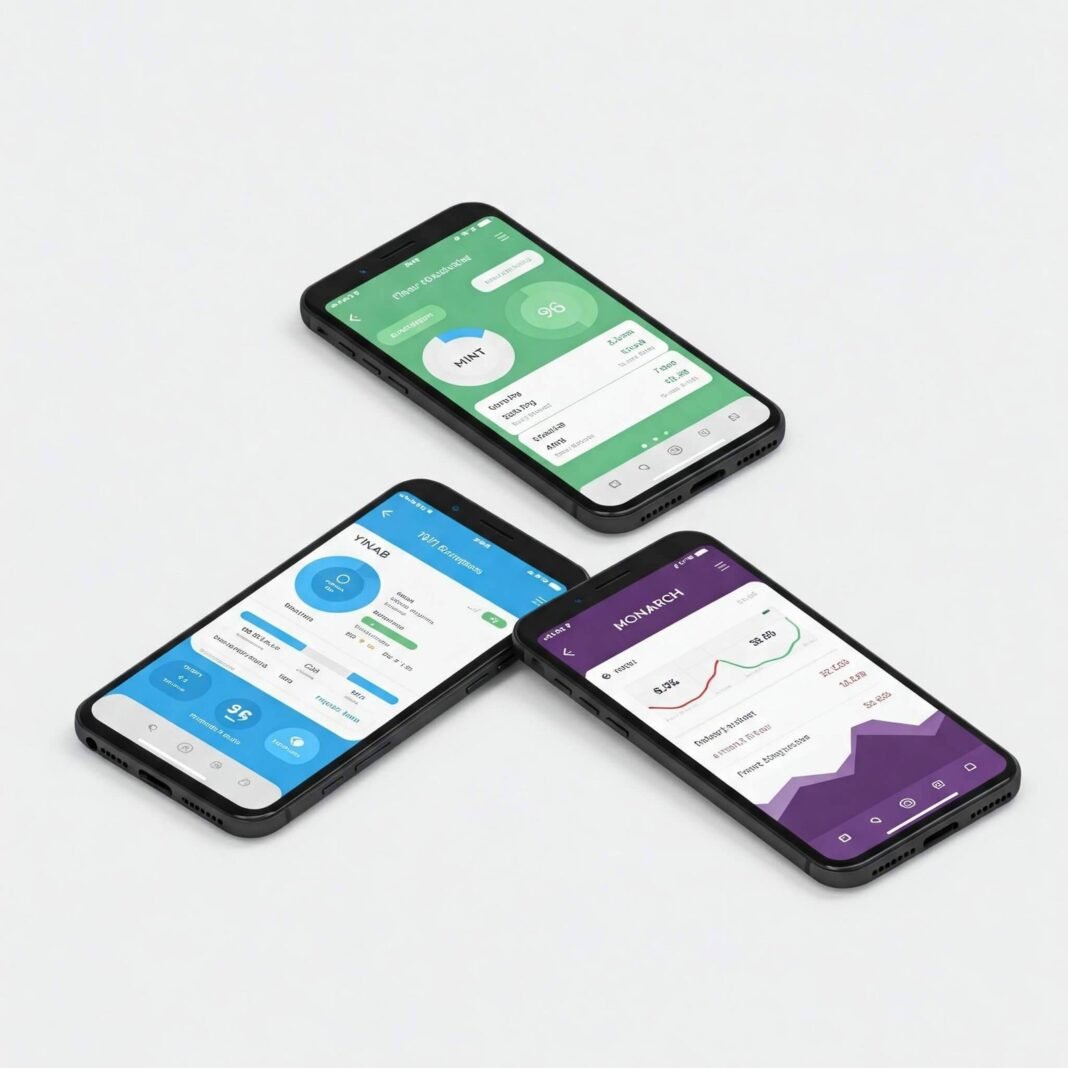Here I am, sweating in my cramped Mumbai apartment, fan whirring like a helicopter, while YNAB vs Mint vs Monarch battles it out to save my chaotic finances as an American lost in India. Honestly, I thought I’d nail budgeting when I landed here months ago. Instead, I blew cash on pani puri, misjudging rupee conversions. Budgeting software should feel empowering, right? Yet, it often just exposes my money messes. So, let’s dive into this YNAB vs Mint vs Monarch showdown from my messy perspective.
My First Stumbles with YNAB vs Mint vs Monarch
Jet-lagged and sprawled on a worn rug, I started downloading these apps in humid Mumbai. YNAB’s zero-based budgeting hit hard. For a moment, assigning rupees to categories felt like control. However, I botched it, labeling grocery money as “street eats” after a late-night craving. That messed up my budget fast. Meanwhile, Bollywood tunes from next door didn’t help my focus.
YNAB’s Intense Grip in the YNAB vs Mint vs Monarch Clash Budgeting Software Showdown
YNAB demands every rupee has a job. During Diwali, I budgeted for sweets and fireworks, sticking to it mostly. But once, I “borrowed” from rent for snacks, scrambling later. It costs about $15/month check YNAB’s site. Pricey, sure, but it builds discipline. Still, I grumble about the subscription fee.

Mint’s Freebie Charm in YNAB vs Mint vs Monarch Budgeting Software Showdown
Back in the States, Mint was my jam with auto-tracking and slick charts. Here in India, syncing US accounts over shaky Wi-Fi was a mess. For example, a rainy rickshaw ride’s transaction popped up late, jacking up my categories. Ads swarmed like market hawkers pushing junk. Since Mint shut down see Intuit’s page, I miss its ease, even if it flopped here.
Mint’s Ad Chaos in YNAB vs Mint vs Monarch Budgeting Software Showdown
Free sounded great, but privacy worries crept in. Did I want my data mined while haggling for mangoes? Nope. Although Mint’s auto-sync felt nostalgic, glitches made it unreliable. In this YNAB vs Mint vs Monarch fight, Mint’s the underdog I left behind.

Monarch’s Fresh Vibe in YNAB vs Mint vs Monarch Budgeting Software Showdown
Then came Monarch Money, sleek like a cool cousin. Its collaborative features saved me on a Goa train trip, splitting costs with a friend. At roughly $10/month visit Monarch’s site, its UI is clean. But, I goofed by not tweaking goals, earning judgy alerts after buying silk scarves. Right now, Monarch’s my pick, though I sometimes crave YNAB’s strictness.
Monarch’s Unexpected Wins in YNAB vs Mint vs Monarch Budgeting Software Showdown
Monarch’s visuals are easy on the eyes, and its gamified savings made me laugh. Still, international bugs annoyed me. For now, it fits my chaotic India life, but I’m torn—YNAB’s discipline keeps calling. Honestly, why can’t one app do it all?

YNAB vs Mint vs Monarch: My Pros, Cons, and Goofs
Here’s my raw take:
- YNAB: Builds habits, has great resources. But it’s pricey and tough to learn. I panicked after misbudgeting during a festival.
- Mint: Free, auto-tracked well. Ads and sync issues were rough. Once, I marked a temple donation as “entertainment”—so cringe.
- Monarch: Sleek, great for sharing. Minor bugs persist. Its savings game was weirdly fun.
Truth is, budgeting software doesn’t cure impulsiveness, especially with dosa aromas pulling me in.
Wrapping Up My YNAB vs Mint vs Monarch Rant
Like ending a chai-fueled chat, I’m vibing with Monarch in this Mumbai madness. It’s forgiving, slick, but I might flip to YNAB if I mess up again. My advice? Pick one, stick with it, learn from your goofs. Try Monarch for a month—what’s your take? Drop it below!





